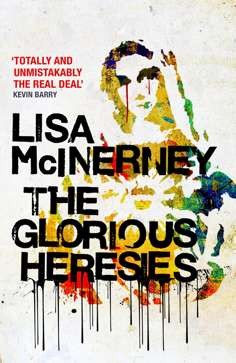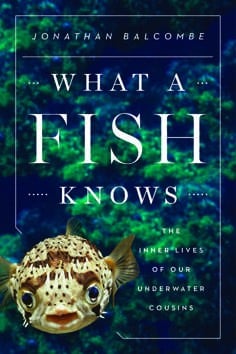
Book reviews: a lilting version of The Glorious Heresies; What a Fish Knows
Lisa McInerney’s biting debut novel is a fascinating commentary on modern Irish life. Plus: a book about fish and their feelings


By Lisa McInerney (read by Shelley Atkinson)
John Murray (audiobook)
★★★★
Set in the most economically denuded areas of Cork city, Lisa McInerney’s debut novel recently defeated highly fancied books by Hanya Yanagihara and Anne Enright to win the 2016 Baileys Women’s Prize for Fiction. If the main perk was the £30,000 (HK$309,000) first prize, another was the delayed release of an accompanying audiobook. The Glorious Heresies is a murder story (in which the mother of a gangster kills with a religious relic) that crosses swords with a tale of young love. Teenager Ryan finds himself about to lose his virginity to Karine, one the most attractive girls at school: “Outside of school, she consistently outclassed him, and yet here she was, standing in his hall on a Monday lunchtime.” Lending nasty spice and, later, pathos to proceedings is Ryan’s father, who returns “trailing divilment and … a foul temper”. The heightened prose bubbles like Wodehouse filtered through Irvine Welsh, and gives Shelley Atkinson ripe material as a narrator. Her Irish lilt can be light, which would work for Wodehouse, but hardens in a moment for the dirt, violence and angry social and political critique. Occasionally, McInerney’s simmering pot boils over, but both she and Atkinson tend to correct the temperature. James Kidd

What a Fish Knows: The Inner Lives of Our
Underwater Cousins
By Jonathan Balcombe
Scientific American/Farrar, Straus and Giroux (e-book)
★★★★
The next time you call someone an ugly old trout or fish face, remember: fish have feelings, too. How ironic then that Jonathan Balcombe’s revealing work is unlikely to make the waves it deserves. In an era when the planet’s human population is busy pushing food stocks towards breaking point, who is going to show any moral concern for the welfare of 33,249 species all casually reduced to one four-letter word? This isn’t a book about overfishing but about how fish experience the world. Yes, fish are intelligent: they feel fear, show cunning, use tools and, in some cases, have prodigious memories. Yet humans classify them not as individuals but as tonnage. Anecdotal, accessible popular science books such as this are frequently concerned with changing attitudes to the creatures and resources we habitually abuse. As we accelerate innumerable species’ progress towards history, however, what price compassion or restraint in fishing and fish farming? Charmaine Chan